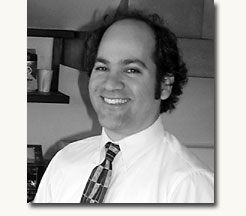
Thursday–Friday
April 29-30, 2004
102 Fishery Sciences
(auditorium)


Thursday–Friday
April 29-30, 2004
102 Fishery Sciences
(auditorium)

Tony DeFalcoWest Coast Organizer, Marine Fish Conservation NetworkThe Environmental, Public Trust, and Socioeconomic Costs of IFQ Programs |
|||
Individual fishing quota programs (IFQs) have been implemented in four US fisheries and in several countries worldwide. Proponents claim that IFQs reduce capacity, promote conservation, improve market conditions, and promote safety. Critics charge that IFQs create disincentives for conservation, excessively consolidate ownership, limit new entrants into the fishery due to the high cost of quota shares, increase management costs, and create a range of negative socioeconomic impacts including loss of employment in coastal communities and inequitable distribution of initial allocation of quotas. Research into these programs reveals both positive and negative impacts. Experience suggests that IFQs reduce overcapitalization, for example, but often do so at a cost to family fishermen and fishing communities. Similarly, the evidence is mixed on conservation benefits. A recent General Accounting Office study details the “delicate balancing act” that managers must walk between economic, environmental, and social costs and benefits in implementing IFQs. For precisely this reason, Congress enacted a moratorium on new IFQ programs from 1996 to 2002 and mandated further study of IFQs by the National Research Council (NRC) before new IFQ programs could be enacted in the US.
The purpose of this paper is not intended to set out arguments for or against IFQs. Nor is it intended to compare IFQ programs with existing management schemes. The purpose is to identify the negative impacts associated with current IFQ programs that have been identified by researchers in US and foreign IFQ-managed fisheries, learn from those mistakes, and make recommendations to avoid them if such programs are to be implemented in future US fisheries. It is certainly possible for these issues to be dealt with by the regional fishery management councils in designing programs, as suggested by NRC. However, empirical evidence of significant conflicts of interest on the council raises serious questions about the councils’ ability to make the hard choices necessary to satisfy the competing demands of well-designed IFQ programs. Instead, given the breadth and depth of potential problems associated with IFQs, Congress should enact national standards governing IFQs to eliminate or mitigate these problems. Such standards would preclude IFQs from becoming property rights, ensure conservation is enhanced through strict standards and regular independent review, and protect family fishermen and fishing communities.
Tony DeFalco is the Portland-based West Coast Regional Organizer for the Marine Fish Conservation Network (Network), a national coalition of more than 160 environmental, fishing and marine science groups seeking sustainable fisheries management. The Network was the driving force behind the conservation provisions of the Sustainable Fisheries Act in 1996 and has since watchdogged regional fishery management councils and the National Marine Fisheries Service (NMFS) implementation of its provisions to end overfishing, minimize the catching and killing of non-target ocean wildlife (bycatch) and protect essential fish habitat. The Network is continuing its call for better management by advocating for reform of the federal fisheries management system. The Network worked with conservationists and fishermen on both coasts to craft a legislative proposal to protect family fishermen, coastal communities and marine resources from the impacts of poorly regulated IFQ programs. That proposal is the basis for legislation currently before the U.S. House of Representatives, the “Fishing Quota Standards Act,” HR 2621.
Mr. DeFalco works with over 50 Network member groups in California, Oregon and Washington to watchdog the Pacific Fishery Management Council's activities, publicize ocean fisheries issues and generate grassroots support for ocean governance reform. Mr. DeFalco has worked as a grassroots organizer for the National Wildlife Federation in its efforts to protect people and wildlife from the harmful impacts of toxic pollution from energy production and mining. Mr. DeFalco holds a BA in Ethnic Studies from the University of California at Berkeley and a MS in Natural Resources Planning from Humboldt State University.
Streaming Video: Each clip is in QuickTime format and runs approximately 9.5 minutes. The Quick Time Previewer is free and can be downloaded from http://www.apple.com/quicktime/. If using a PC: Right click mouse > Select 'save target as' > open once downloaded.
Clip 1
Clip 2
Clip 3
Clip 4